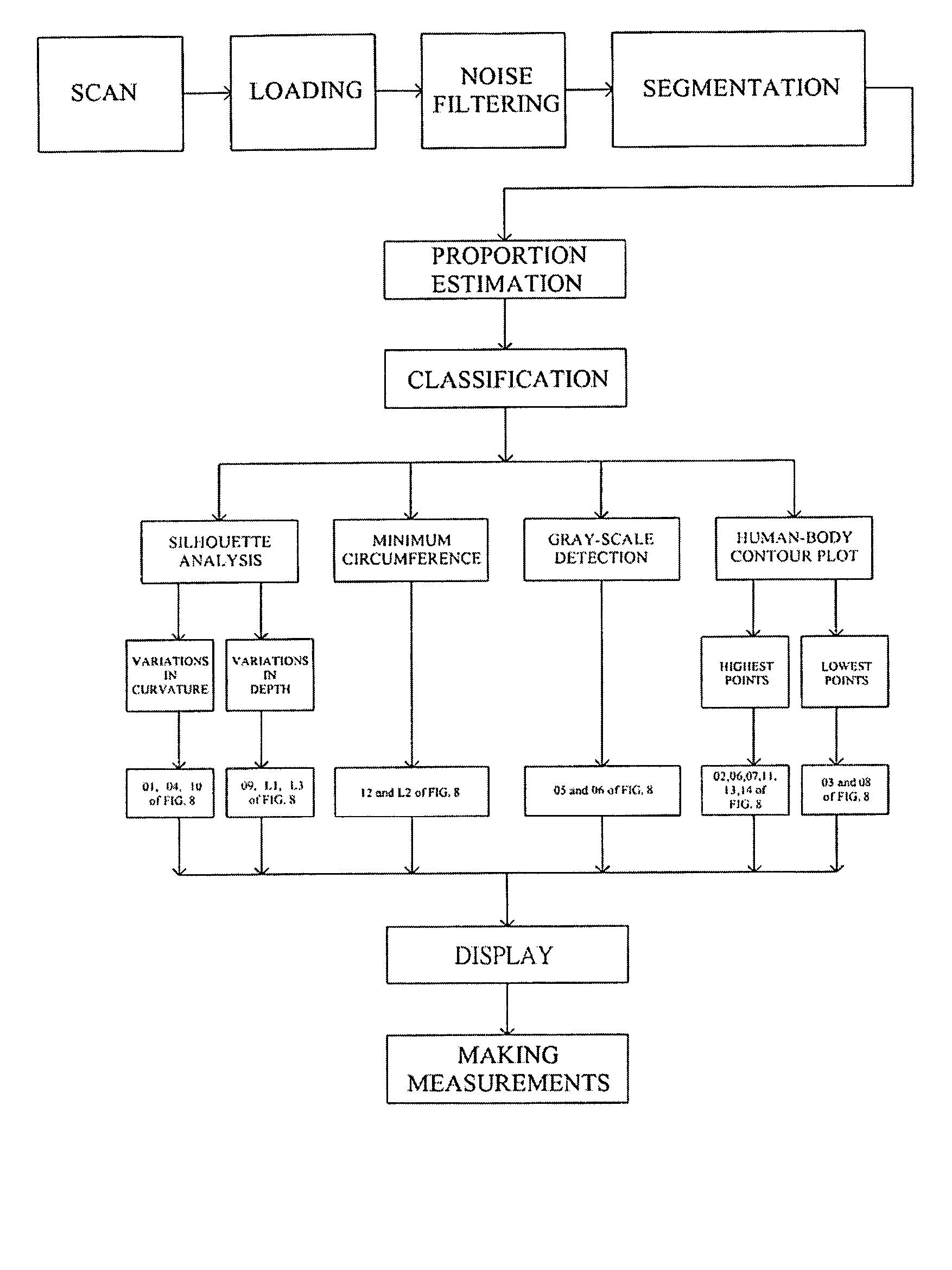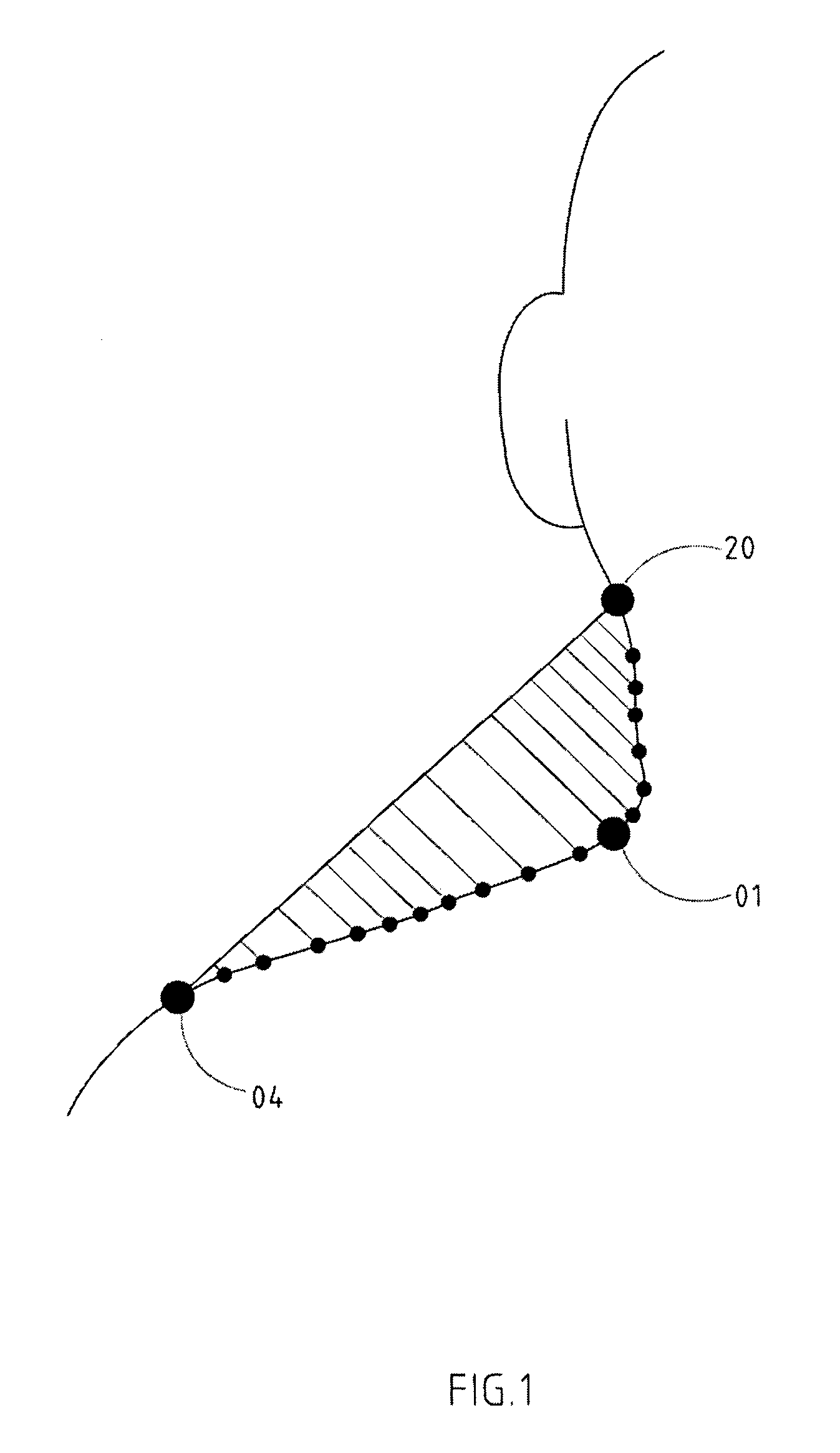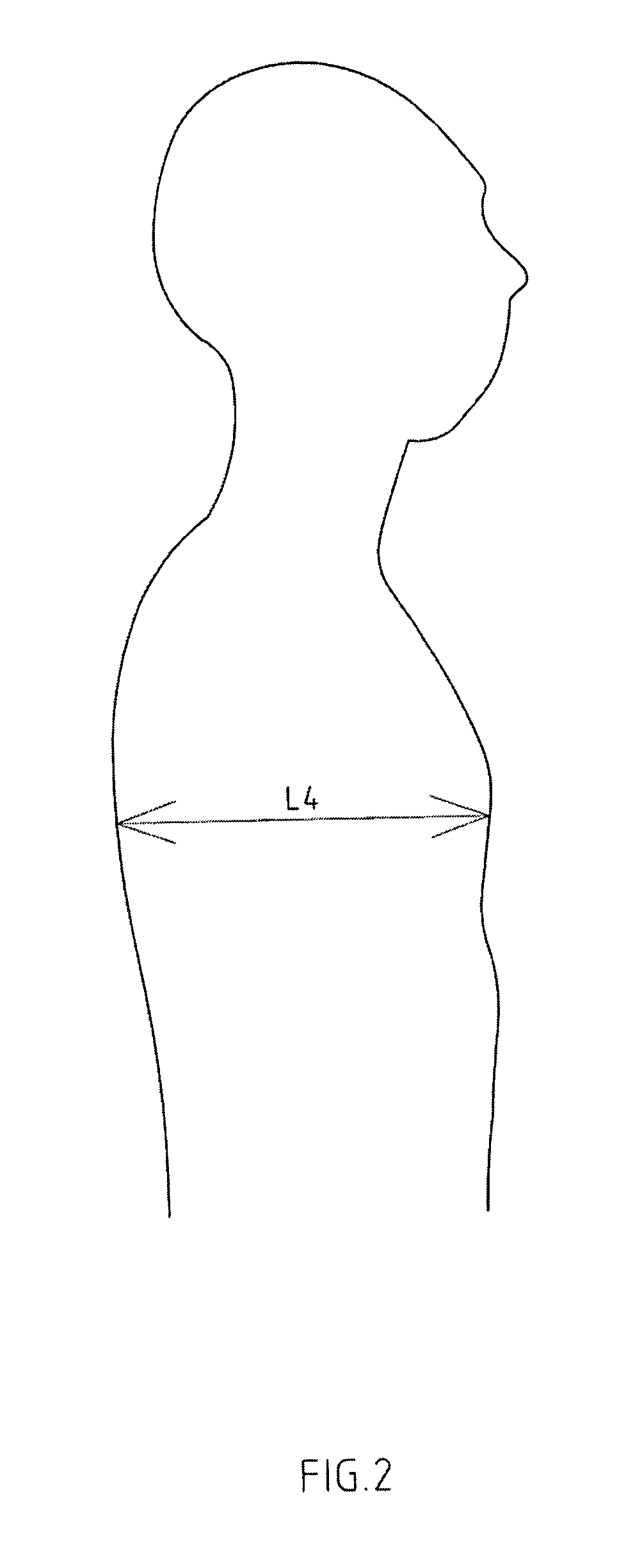Automated landmark extraction from three-dimensional whole body scanned data
a landmark technology, applied in the field of automatic extraction of landmarks from three-dimensional whole body scan data, can solve the problems of inefficiency, inconvenient scanning, and large amount of scanning effort, and achieve the effect of reducing the number of scanning operations, and improving the accuracy of scanning results
- Summary
- Abstract
- Description
- Claims
- Application Information
AI Technical Summary
Benefits of technology
Problems solved by technology
Method used
Image
Examples
Embodiment Construction
[0027]The features and the advantages of the present invention will be more readily understood upon a thoughtful deliberation of the following detailed description of a preferred embodiment of the present invention with reference to the accompanying drawings.
[0028]First, please refer the attached diagrams, which is a better implementation example of this method for automated landmark extraction from three-dimensional whole body scanned data. It is a system, in which 14 landmarks and 3 feature lines were extracted from a plurality of data points. These landmarks include intersection of neck and shoulder 01 (side neck point), seventh cervical point 02 (back neck point), suprasternale 03 (front neck point), acromion 04, armpit 05, bust point 06, inferior angle of scapula 07, navel 08, rearmost of hip 09, crotch 10, elbow 11, wrist 12, patella 13, and lateral malleolus 14. The three feature lines include chest line L1, waist line L2, and hip line L3. Based on these landmarks and feature...
PUM
 Login to View More
Login to View More Abstract
Description
Claims
Application Information
 Login to View More
Login to View More - R&D
- Intellectual Property
- Life Sciences
- Materials
- Tech Scout
- Unparalleled Data Quality
- Higher Quality Content
- 60% Fewer Hallucinations
Browse by: Latest US Patents, China's latest patents, Technical Efficacy Thesaurus, Application Domain, Technology Topic, Popular Technical Reports.
© 2025 PatSnap. All rights reserved.Legal|Privacy policy|Modern Slavery Act Transparency Statement|Sitemap|About US| Contact US: help@patsnap.com



